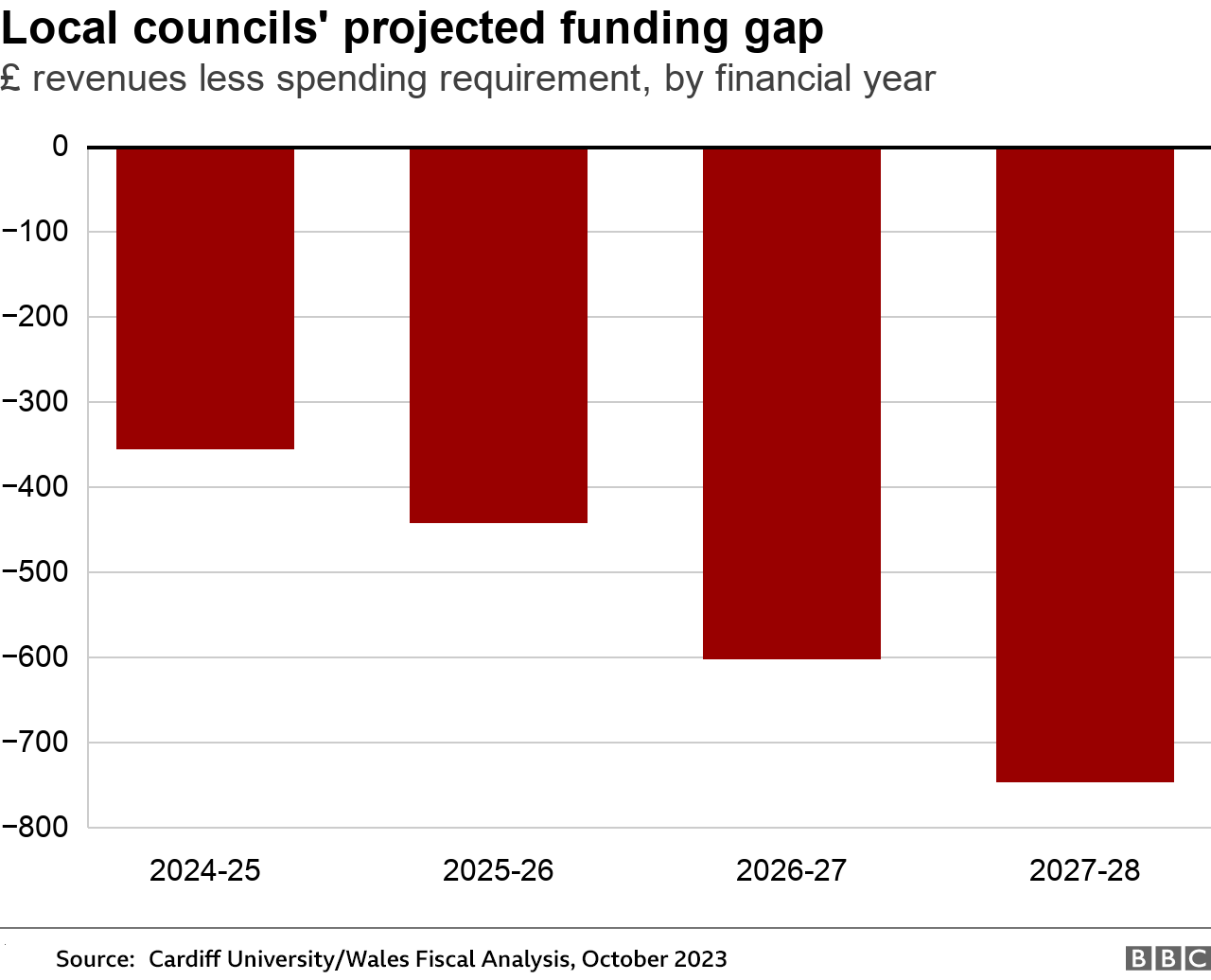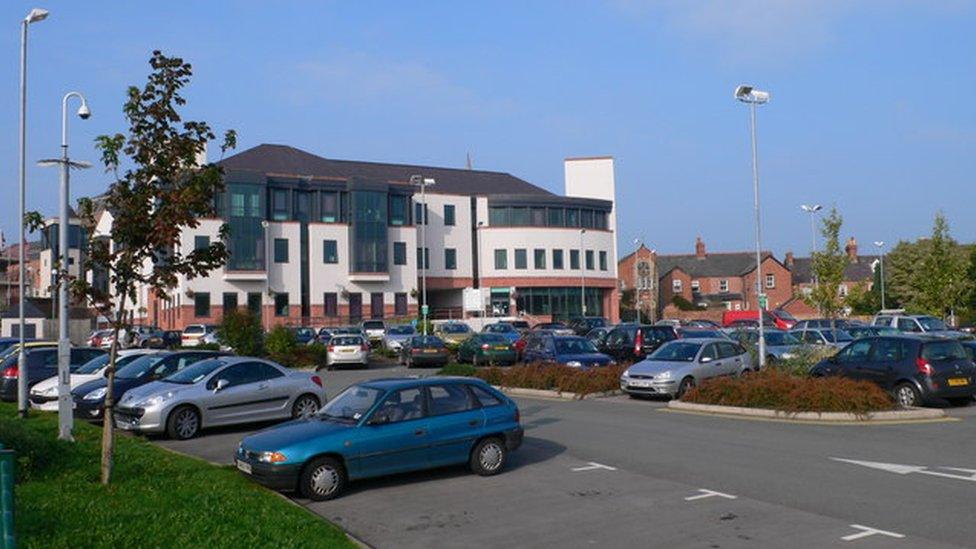Welsh councils face future funding gap of nearly £750m, warn experts
- Published

The report warns that local government finances appear to be on an unsustainable path
Services provided by Wales' 22 local councils could be seriously affected by funding shortfalls in the years ahead, finance experts have said.
Cardiff University's Wales Governance Centre estimates the funding gap could reach nearly £750m by 2027.
Public finances expert Guto Ifan said spending pressures were likely to outstrip expected funding increases.
"This could have a serious impact on the provision of local services," he warned.
Recent spending pressures have included pay increases for local government staff and teachers, despite many workers experiencing pay cuts in real terms during a period of high inflation.
The Welsh government said it recognised that local authorities are "facing difficult decisions and we continue to work closely with councils to meet the shared challenges we face".
Councils provide services including schools, social care, housing, transport and highways, leisure, libraries, recycling and refuse collection.
In August, BBC research found Welsh councils expect a combined shortfall of around £395m over the next two years.
Last week Labour leader of Denbighshire council Jason McLellan said the authority's main priority was avoiding bankruptcy, in a private letter.
This report, published on Wednesday, is based on UK government future indicative spending plans, which propose substantial cuts and therefore a major squeeze on funding for the Welsh government.
The review suggests councils could mitigate shortfalls in the 2024-25 financial year by drawing on reserves, raising council tax by more than 5% and receiving further Welsh government funding.
After that, the document warns, the funding gap will grow each year and reach £744m by 2027, what the report calls a seemingly "unsustainable path".
The review also warns that if ministers intend to increase health, schools and childcare spending they will need to find cuts of £318m in cash terms by 2027-28 in all other areas.

Mr Ifan, from the Wales Fiscal Analysis team, said: "While local government services have been spared from the cuts announced for this year, the projections outlined in the briefing suggest a difficult medium-term outlook for Welsh local authority budgets.
"Inflation and pay rises are set to fall over coming years, but spending pressures are still likely to outstrip projected increases in funding. This could have a serious impact on the provision of local services."
Mr Ifan questioned the "feasibility of achieving these further cuts" in the "context of the deep slashes in spending since 2010".
"Any increases in local authority budgets are likely to come from higher levels of council tax, which takes proportionately more money from poorer households in Wales," he said.
This meant the argument for reforming council tax was "more urgent", as was the case for considering raising Welsh income taxes instead, he added, a source of revenue which is better related to people's ability to pay.
The Welsh government is committed to reforming council tax as part of Labour ministers' cooperation agreement with Plaid Cymru.
What do ministers say?
Responding to the report, a Welsh government spokesperson said that to protect public services funding for councils it had increased local authority funding for this year "with a 7.9% increase across Wales on a like-for-like basis".
"This follows a 9.4% increase in 2022-23. But we recognise that local authorities are facing difficult decisions and we continue to work closely with councils to meet the shared challenges we face," they added.
Welsh Conservative local government spokesman Sam Rowlands said: "With hard-working residents continuing to face council tax hikes, we're calling for a full review of the local government funding formula, and to ensure councils use their useable reserves, before hitting residents with council tax rises."
Plaid Cymru finance and local government spokesperson Peredur Owen Griffiths said councils needed "urgent clarity" as "so many day-to day services are potentially at risk".
"Plaid Cymru are calling on Labour ministers to publish the line by line detail of the decisions that they have made and explain what the consequences will be for Welsh councils," he said.
Related topics
- Published24 October 2023

- Published18 October 2023

- Published1 October 2023

- Published23 August 2023
